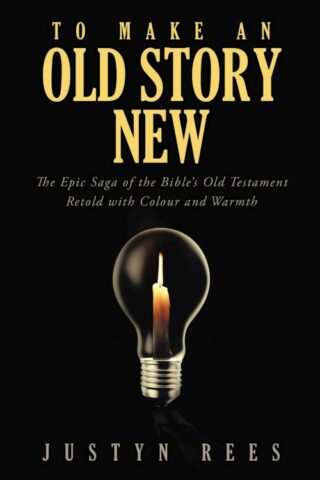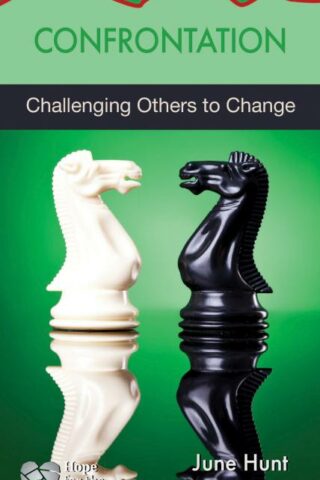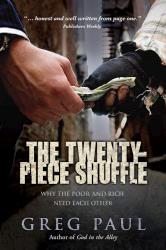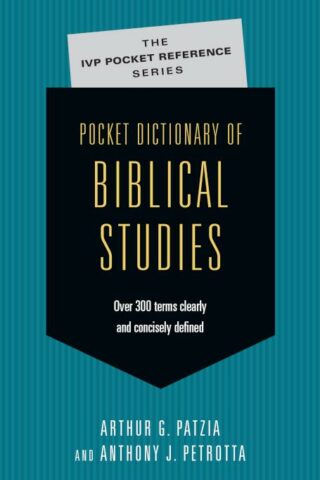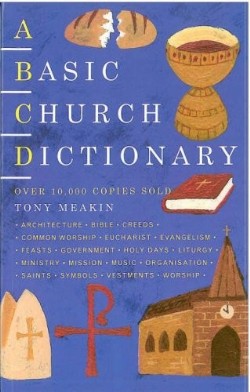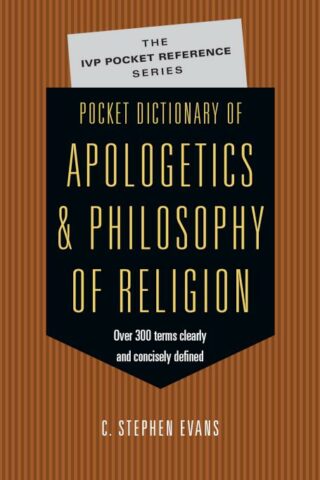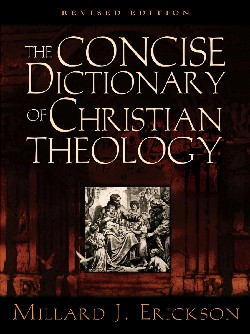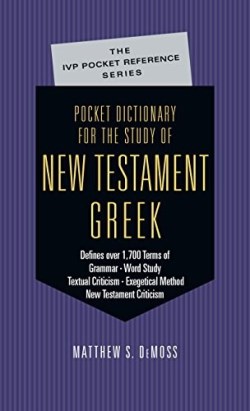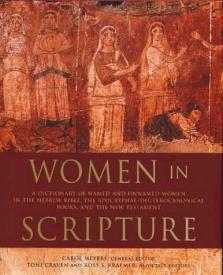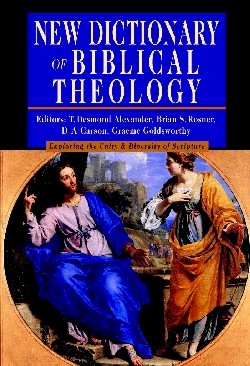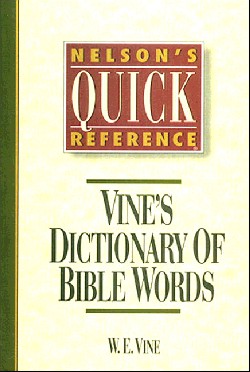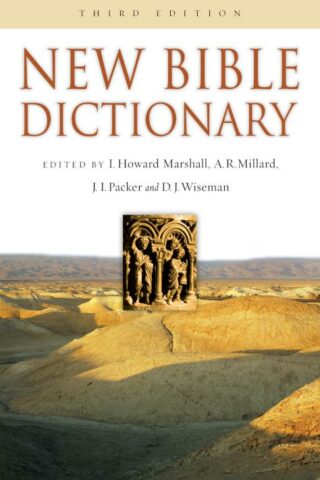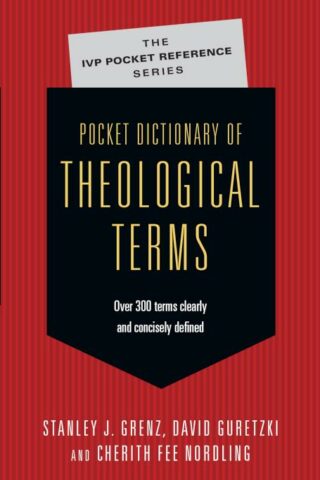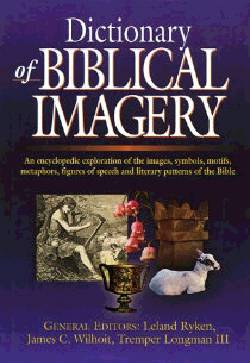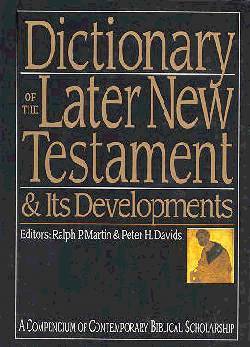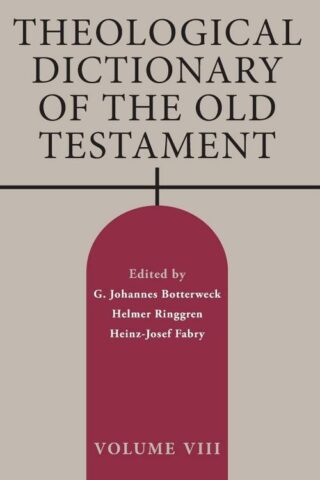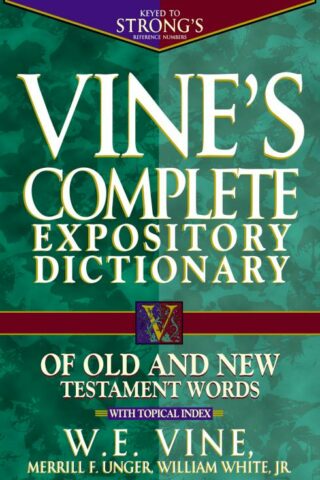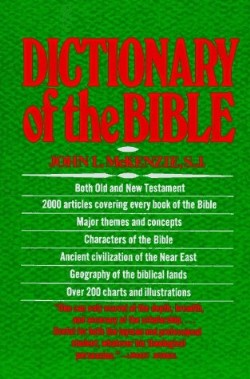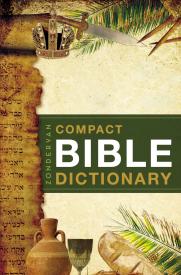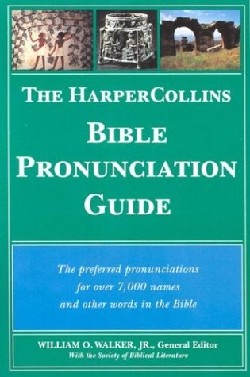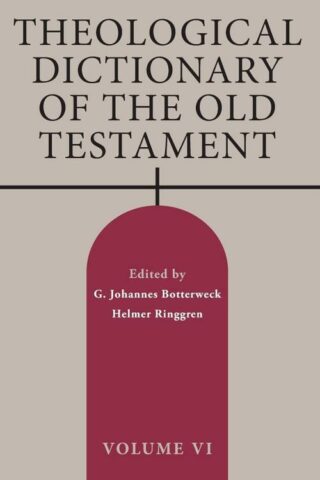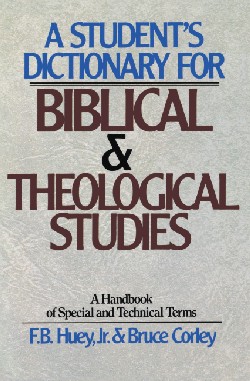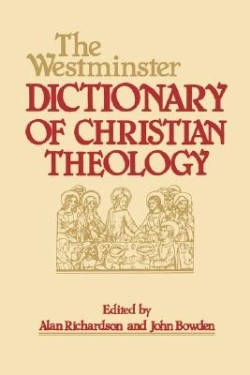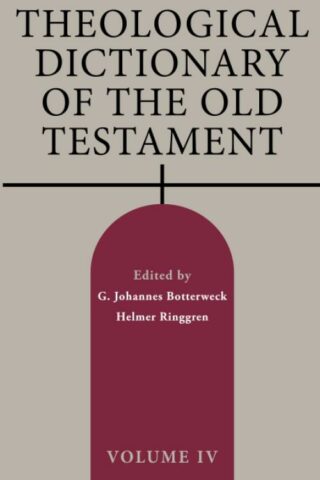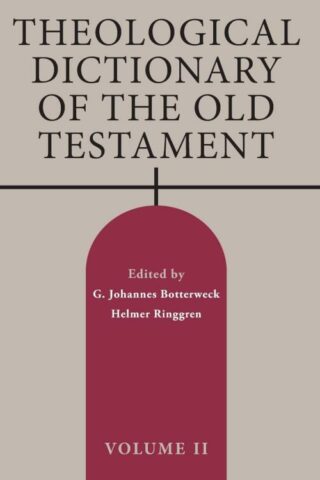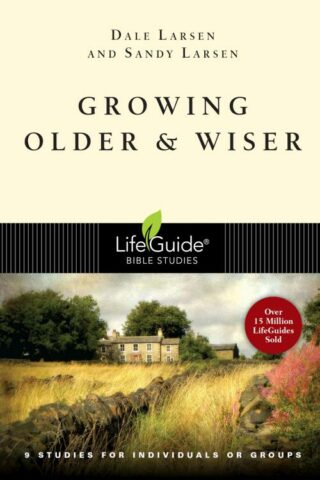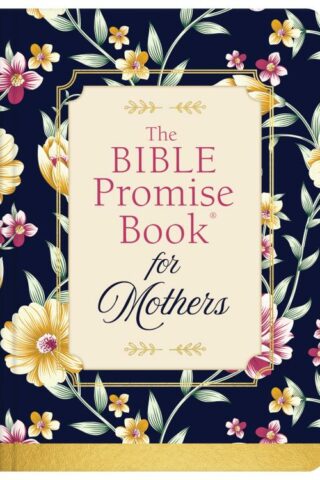Bible Dictionaries
Showing 51–73 of 73 resultsSorted by latest
-
Pocket Dictionary Of Biblical Studies
$14.99So many words about the Word. The study of anything seems to generate its own special vocabulary, and biblical studies is no different. What’s more, it’s got nearly a two-thousand-year lead on you! How can you catch up? Here is the answer!
If you are puzzled by parataxis or rankled by recensions, the Pocket Dictionary of Biblical Studies is the companion you need. Whether you are studying Old Testament or New Testament or both at once, this little book is your private tutor, your ever-ready guide to over three hundred biblical-studies terms. Here’s your glossary for reading course textbooks, your decoder for listening to lectures, your review sheet for cramming for finals and your “help” key for writing research papers.
Among the more than 300 terms defined you’ll discover:
* types of biblical criticism, from genre criticism to tradition criticism
* Greek and Latin terms, from agrapha to vaticinium ex eventu
* German terms, from Fruhkatholizismus to Wissenschaft
* ancient texts, from Aleppo Codex to Zadokite Document
* literary features, from acrostic to woe oracle
* theories, from the Augustinian hypothesis to the Yahwist source
* textual criticism terms, from codex to Western textWritten by Arthur G. Patzia and Anthony J. Petrotta, two biblical studies professors who know what you need to know, Pocket Dictionary of Biblical Studies will be your essential guide into a fascinating world of understanding.
Add to cartin stock within 3-5 days of online purchase
-
Basic Church Dictionary (Revised)
$15.00This perennially popular and practical dictionary provides definitions of terminology associated with church architecture, administration, the Bible, the Christian year, liturgy, ministry and much more. An essential guide for all involved in church life.
Add to cartin stock within 3-5 days of online purchase
-
Pocket Dictionary Of Apologetics And Philosophy Of Religion
$14.99For philosophers, the pursuit of truth travels on precise definitions. For Christian apologists, the defense of the faith is founded on the defining Word. And for beginning students of either discipline, the difference between success and frustration begins with understanding the terms and ideas and identifying the thinkers and movements.
The Pocket Dictionary of Apologetics & Philosophy of Religion is designed to be a companion to your study of these two related disciplines. Among its 300 entries are:
* terms, from a posteriori to worldview
* apologists, from Abelard to Van Til
* philosophers of religion, from Alston to Wolterstorff
* movements, from analytic philosophy to voluntarism
* apologetic arguments, from the cosmological to the wager
* theologies, from Arminianism to ZoroastrianismHere is an affordable and easily accessible “help key” for your readings, lectures, writing assignments and exam preparation. It’s a must-have study aid for any student who expects to cogitate on coherentism or ruminate on Ricouer.
Add to cartin stock within 3-5 days of online purchase
-
Concise Dictionary Of Chrisitian Theology
$21.99Whether you’re studying at seminary or in your living room, here’s an indispensable resource to keep handy! Newly updated with pertinent ideas and persons from the past 15 years, this second edition retains its emphasis on the first 20 centuries of Christianity. For all your theological questions, Erickson provides clear, succinct definitions and understanding. 208 pages, softcover from Crossway Books.
Add to cartin stock within 3-5 days of online purchase
-
Pocket Dictionary For The Study Of New Testament Greek
$14.99If you are beginning your study of New Testament Greek or Greek exegesis, this book is for you!
From ablative to zeugma, it defines the tangled terms that infest Greek textbooks, grammars and lexicons.
Here is the book to deliver you from late-night ponderings of the predicate and frantic fumings over the fricative. It is the indispensable lexicon to that third language that is neither Greek nor recognizable English: the technical vocabulary of grammarians, lexicographers, linguists and Greek instructors. What’s more, this pocket dictionary gives you the inside edge on the terminology of exegesis, textual criticism and biblical criticism.
Careful definitions, helpful examples and copious cross-references make this economically priced, brief dictionary easy to use. And its convenient size will make it a constant companion in your study of the Greek New Testament.
Add to cartin stock within 3-5 days of online purchase
-
Women In Scripture
$66.99A groundbreaking survey that takes the study of biblical women to a new level! Exploring the lives of all women—named and unnamed—in the Hebrew Bible, New Testament, and the apocryphal/deuterocanonical books, respected scholars offer 800 articles on prophets and prostitutes, deacons and dancers, widows and wet nurses, rulers and slaves. A must-have reference!
Add to cartin stock within 3-5 days of online purchase
-
New Dictionary Of Biblical Theology
$70.00Make this landmark resource the cornerstone of your biblical reference library! Comprehensive and accessible, this A-to-Z encyclopedia offers 215 entries from top evangelical scholars that explore key issues such as “atonement,” “creation,” and “redemption.” In-depth articles examine the theology underpinning each Bible book, the unity and diversity of Scripture, and more. Includes bibliographies and cross-references.
Add to cartin stock within 3-5 days of online purchase
-
New Bible Dictionary 3rd Edition (Reprinted)
$70.00The New Bible Dictionary is a reference work ideally suited for people of all ages and backgrounds. This magnificent and comprehensive Bible dictionary has set the standard for evangelical Bible dictionaries for five decades. Now in its third, updated edition, it is clear leader in it field.
The third edition of the New Bible Dictionary will increase the reader’s knowledge and understanding of God’s Word as no other single book can do. It is an invaluable reference book for school and colleges, for theological and Bible college students, ministers and laypeople, teachers and professional scholars – everyone who wants to understand and know the Bible better.
Add to cartin stock within 3-5 days of online purchase
-
Pocket Dictionary Of Theological Terms
$14.99Beginning to study theology is like stepping into a conversation that has been going on for two thousand years.
How do you take part in this conversation–or even make sense of it–if you don’t understand the vocabulary or know the contributions made by other participants?
The Pocket Dictionary of Theological Terms is the perfect companion to your theological studies. Among its three hundred-plus definitions are:
* English terms, from accomodation to wrath of God
* foreign terms, from a posteriori to via media
* theological movements and traditions, from the Alexandrian School to Wesleyanism
* theologians, from Anselm of Canterbury to Ulrich ZwingliHere is an affordable and easily accessible resource for your theological readings, lectures and writing assignments. It’s a must-have for every beginning theological student!
Add to cartin stock within 3-5 days of online purchase
-
Dictionary Of Biblical Imagery
$70.00This unique reference offers an encyclopedic exploration of topics not found in ordinary Bible dictionaries—like the images, symbols, motifs, metaphors, and literary patterns of the Bible. With its right-brain (rather than left-brain) approach, this warm and creative study resource examines the artistic expressions that fascinate and puzzle Christians.
Add to cartin stock within 3-5 days of online purchase
-
Dictionary Of The Later New Testament And Its Developments
$70.00Preface
How To Use This Dictionary
Abbreviations
Transliterations
List Of Contributors
Dictionary Articles
Scripture Index
Subject Index
Articles Index
1290 PagesAdditional Info
1998 GOLD MEDALLION WINNERThe Dictionary of the Later New Testament and Its Developments follows the Dictionary of Jesus and the Gospels and the Dictionary of Paul and His Letters as the third in a celebrated series of reference works on the Bible. Picking up where the previous volumes left off, this volume includes in its scope the book of Acts, the general epistles of Peter, James, Jude and John, and the books of Hebrews and Revelation. This Dictionary is without peer in its in-depth coverage of the most neglected books of the New Testament.
In addition to its coverage of this New Testament literature, a unique and valuable feature of this dictionary is its extended coverage of developments in early Christianity through A. D. 150. Some articles, such as those on each of the apostolic fathers, focus exclusively on this post-apostolic period. But nearly all topical articles take into consideration the writings of the apostolic fathers. Readers will enjoy a deeper and expanded understanding of how orthodox Christianity continued and developed in the years just following the New Testament era. No other single-volume reference work provides comparable coverage and assessment of the early patristic era and its theology.
Add to cartin stock within 3-5 days of online purchase
-
Theological Dictionary Of The Old Testament Volume 8
$78.99This multivolume work is still proving to be as fundamental to Old Testament studies as its companion set, the Kittel-Friedrich Theological Dictionary of the New Testament, has been to New Testament studies.
Beginning with ‘abh (‘ab), “father,” and continuing through the alphabet, the TDOT volumes present in-depth discussions of the key Hebrew and Aramaic words in the Old Testament. Leading scholars of various religious traditions (including Roman Catholic, Lutheran, Reformed, Anglican, Greek Orthodox, and Jewish) and from many parts of the world (Denmark, France, Germany, Great Britain, Greece, Israel, Italy, the Netherlands, Norway, Sweden, Switzerland, and the United States) have been carefully selected for each article by editors Botterweck, Ringgren, and Fabry and their consultants, George W. Anderson, Henri Cazelles, David Noel Freedman, Shemaryahu Talmon, and Gerhard Wallis.
The intention of the writers is to concentrate on meaning, starting from the more general, everyday senses and building to an understanding of theologically significant concepts. To avoid artificially restricting the focus of the articles, TDOT considers under each keyword the larger groups of words that are related linguistically or semantically. The lexical work includes detailed surveys of a word’s occurrences, not only in biblical material but also in other ancient Near Eastern writings. Sumerian, Akkadian, Egyptian, Ethiopic, Ugaritic, and Northwest Semitic sources are surveyed, among others, as well as the Qumran texts and the Septuagint; and in cultures where no cognate word exists, the authors often consider cognate ideas.
TDOT’s emphasis, though, is on Hebrew terminology and on biblical usage. The contributors employ philology as well as form-critical and traditio-historical methods, with the aim of understanding the religious statements in the Old Testament. Extensive bibliographical information adds to the value of this reference work.
This English edition attempts to serve the needs of Old Testament students without the linguistic background of more advanced scholars; it does so, however, without sacrificing the needs of the latter. Ancient scripts (Hebrew, Greek, etc.) are regularly transliterated in a readable way, and meanings of foreign words are given in many cases where the meanings might be obvious to advanced scholars. Where the Hebrew text versification differs from that of English Bibles, the English verse appears in parentheses. Such features
Add to cartin stock within 3-5 days of online purchase
-
Vines Complete Expository Dictionary Of Old And New Testament Words Super V
$44.99CONTENTS
Publisher’s Preface (to The One-Volume Edition)
OLD TESTAMENT SECTION
Contributors
Foreword
Introduction
Old Testament Words
English Word Index
Hebrew Word IndexNEW TESTAMENT SECTION
(following Page 319)Publisher’s Preface
Foreword
Foreword To New One-Volume Edition
Preface
New Testament Words
Additional Notes:
On The Particle Kai
On The Particle De
On The Prepositions Anti And Huper
On The Prepositions Apo And Ek
On The Preposition En
Greek Word Index
Topical Index
Introduction
Revelation
God
Jesus Christ
The Holy Spirit
Creation
Supernatural Beings
Human Beings
Sin
Salvation
The Life Of The Believer
The People Of God
The Future
Function And General Words P. 63Additional Info
The most affordable complete edition of Vine’s famous Old and New Testament dictionaries available, this super value edition of a classic study resource helps those with limited or no background in Hebrew or Greek to study the meaning of biblical words in the original languages. A great resource for students, pastors, and anyone who enjoys biblical word studies. Serves as a dictionary, commentary, and concordance.Add to cartin stock within 3-5 days of online purchase
-
Dictionary Of The Bible
$28.00A comprehensive resource includes both Old and New Testament, 2000 articles covering every book of the Bible, major themes and concepts, characters of the Bible, ancient civilization of the Near East, geography of the biblical lands, and over 200 charts and illustrations.
Add to cartin stock within 3-5 days of online purchase
-
Zondervan Compact Bible Dictionary
$18.99This comprehensive reference tool for Bible students and teachers is arranged by topic and provides over 6,000 entries with more than 100,000 Scripture references. It also serves as a Bible dictionary, listing all proper names, places, objects, and events of the Bible along with their brief definition or description.
Add to cartin stock within 3-5 days of online purchase
-
ABCs Of Worship
$30.00If you’re curious about the terms and practices used in worship, you’ll enjoy this dictionary. Stake includes 150 concise (not wordy) articles on topics such as ecumenicism, Maundy Thursday, anointing, symbols, Pentecost, and the Christian Year. Clearly written, the articles are arranged in alphabetical order and are cross-referenced so you can get the most out of them. Satisfy your curiosity!
Add to cartin stock within 3-5 days of online purchase
-
Theological Dictionary Of The Old Testament Volume 6
$78.99This multivolume work is still proving to be as fundamental to Old Testament studies as its companion set, the Kittel-Friedrich Theological Dictionary of the New Testament, has been to New Testament studies.
Beginning with ‘abh (‘ab), “father,” and continuing through the alphabet, the TDOT volumes present in-depth discussions of the key Hebrew and Aramaic words in the Old Testament. Leading scholars of various religious traditions (including Roman Catholic, Lutheran, Reformed, Anglican, Greek Orthodox, and Jewish) and from many parts of the world (Denmark, France, Germany, Great Britain, Greece, Israel, Italy, the Netherlands, Norway, Sweden, Switzerland, and the United States) have been carefully selected for each article by editors Botterweck, Ringgren, and Fabry and their consultants, George W. Anderson, Henri Cazelles, David Noel Freedman, Shemaryahu Talmon, and Gerhard Wallis.
The intention of the writers is to concentrate on meaning, starting from the more general, everyday senses and building to an understanding of theologically significant concepts. To avoid artificially restricting the focus of the articles, TDOT considers under each keyword the larger groups of words that are related linguistically or semantically. The lexical work includes detailed surveys of a word’s occurrences, not only in biblical material but also in other ancient Near Eastern writings. Sumerian, Akkadian, Egyptian, Ethiopic, Ugaritic, and Northwest Semitic sources are surveyed, among others, as well as the Qumran texts and the Septuagint; and in cultures where no cognate word exists, the authors often consider cognate ideas.
TDOT’s emphasis, though, is on Hebrew terminology and on biblical usage. The contributors employ philology as well as form-critical and traditio-historical methods, with the aim of understanding the religious statements in the Old Testament. Extensive bibliographical information adds to the value of this reference work.
This English edition attempts to serve the needs of Old Testament students without the linguistic background of more advanced scholars; it does so, however, without sacrificing the needs of the latter. Ancient scripts (Hebrew, Greek, etc.) are regularly transliterated in a readable way, and meanings of foreign words are given in many cases where the meanings might be obvious to advanced scholars. Where the Hebrew text versification differs from that of English Bibles, the English verse appears in parentheses. Such features
Add to cartin stock within 3-5 days of online purchase
-
Students Dictionary For Biblical Theological Studies
$14.99This dictionary contains nearly thirteen hundred entries, covering the whole field of Old and New Testament studies. The entries range from technical grammatical terms to obscure theological jargon and are often terms that are difficult to find in other dictionaries. Wherever possible, cross reference, is made to related or equivalent terms. The majority of entries include a brief description of explanation of the term and an example from the Old and/or New Testament. Hebrew and Greek words are transliterated so that the dictionary can be used easily by students at any level, whether they have studied the languages or not. The New International Version is used for all biblical quotations.
Add to cartin stock within 3-5 days of online purchase
-
Westminster Dictionary Of Christian Theology
$70.00The Westminter Dictionary of Christian Theology is an important reference for any pastor, scholar, or student of theology. The articles are clearly written, historically informative, and conceptually clarifying. The entries are arranged alphabetically for ease of use.
Add to cartin stock within 3-5 days of online purchase
-
Theological Dictionary Of The Old Testament Volume 4
$78.99This multivolume work is still proving to be as fundamental to Old Testament studies as its companion set, the Kittel-Friedrich Theological Dictionary of the New Testament, has been to New Testament studies.
Beginning with ‘abh (‘ab), “father,” and continuing through the alphabet, the TDOT volumes present in-depth discussions of the key Hebrew and Aramaic words in the Old Testament. Leading scholars of various religious traditions (including Roman Catholic, Lutheran, Reformed, Anglican, Greek Orthodox, and Jewish) and from many parts of the world (Denmark, France, Germany, Great Britain, Greece, Israel, Italy, the Netherlands, Norway, Sweden, Switzerland, and the United States) have been carefully selected for each article by editors Botterweck, Ringgren, and Fabry and their consultants, George W. Anderson, Henri Cazelles, David Noel Freedman, Shemaryahu Talmon, and Gerhard Wallis.
The intention of the writers is to concentrate on meaning, starting from the more general, everyday senses and building to an understanding of theologically significant concepts. To avoid artificially restricting the focus of the articles, TDOT considers under each keyword the larger groups of words that are related linguistically or semantically. The lexical work includes detailed surveys of a word’s occurrences, not only in biblical material but also in other ancient Near Eastern writings. Sumerian, Akkadian, Egyptian, Ethiopic, Ugaritic, and Northwest Semitic sources are surveyed, among others, as well as the Qumran texts and the Septuagint; and in cultures where no cognate word exists, the authors often consider cognate ideas.
TDOT’s emphasis, though, is on Hebrew terminology and on biblical usage. The contributors employ philology as well as form-critical and traditio-historical methods, with the aim of understanding the religious statements in the Old Testament. Extensive bibliographical information adds to the value of this reference work.
This English edition attempts to serve the needs of Old Testament students without the linguistic background of more advanced scholars; it does so, however, without sacrificing the needs of the latter. Ancient scripts (Hebrew, Greek, etc.) are regularly transliterated in a readable way, and meanings of foreign words are given in many cases where the meanings might be obvious to advanced scholars. Where the Hebrew text versification differs from that of English Bibles, the English verse appears in parentheses. Such features
Add to cartin stock within 3-5 days of online purchase
-
Theological Dictionary Of The Old Testament Volume 2
$78.99This multivolume work is still proving to be as fundamental to Old Testament studies as its companion set, the Kittel-Friedrich Theological Dictionary of the New Testament, has been to New Testament studies.
Beginning with ‘abh (‘ab), “father,” and continuing through the alphabet, the TDOT volumes present in-depth discussions of the key Hebrew and Aramaic words in the Old Testament. Leading scholars of various religious traditions (including Roman Catholic, Lutheran, Reformed, Anglican, Greek Orthodox, and Jewish) and from many parts of the world (Denmark, France, Germany, Great Britain, Greece, Israel, Italy, the Netherlands, Norway, Sweden, Switzerland, and the United States) have been carefully selected for each article by editors Botterweck, Ringgren, and Fabry and their consultants, George W. Anderson, Henri Cazelles, David Noel Freedman, Shemaryahu Talmon, and Gerhard Wallis.
The intention of the writers is to concentrate on meaning, starting from the more general, everyday senses and building to an understanding of theologically significant concepts. To avoid artificially restricting the focus of the articles, TDOT considers under each keyword the larger groups of words that are related linguistically or semantically. The lexical work includes detailed surveys of a word’s occurrences, not only in biblical material but also in other ancient Near Eastern writings. Sumerian, Akkadian, Egyptian, Ethiopic, Ugaritic, and Northwest Semitic sources are surveyed, among others, as well as the Qumran texts and the Septuagint; and in cultures where no cognate word exists, the authors often consider cognate ideas.
TDOT’s emphasis, though, is on Hebrew terminology and on biblical usage. The contributors employ philology as well as form-critical and traditio-historical methods, with the aim of understanding the religious statements in the Old Testament. Extensive bibliographical information adds to the value of this reference work.
This English edition attempts to serve the needs of Old Testament students without the linguistic background of more advanced scholars; it does so, however, without sacrificing the needs of the latter. Ancient scripts (Hebrew, Greek, etc.) are regularly transliterated in a readable way, and meanings of foreign words are given in many cases where the meanings might be obvious to advanced scholars. Where the Hebrew text versification differs from that of English Bibles, the English verse appears in parentheses. Such features
Add to cartin stock within 3-5 days of online purchase


